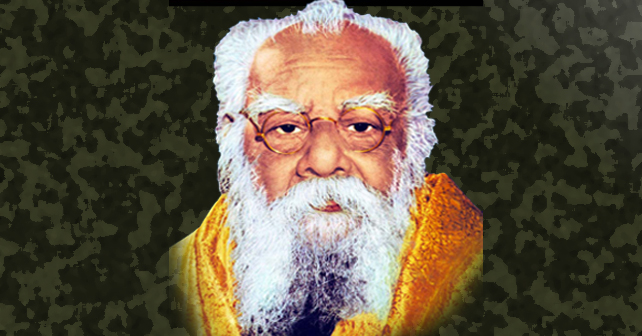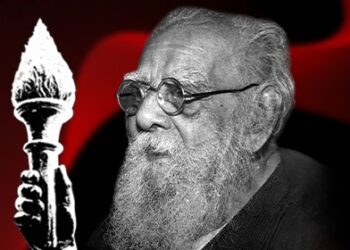One should consider his dignity and prestige only in his personal affairs. In matters of public interest and in service, he should ignore them.
Man, unlike other animals, lives in a society of his own kind. Living as a social animal, he has to necessarily serve others, receive help from others, and be useful to society in some way or other. Thus, if an individual can be of service to society, he deserves to live. Otherwise, as one merely living to eat, what is the use of his existence?
The number of those who do selfless public service and those who served without expecting any return, should increase. Their sterling qualities should show the way to the people at large. Their life would be a model to show how man should conduct himself in public life.
Since birth and death are natural, people should conduct themselves in a praiseworthy manner during their span of life. People do not praise anyone for nothing. We should so act as to be worthy of praise from others.
To do all the good to others that one wishes to be done for himself, is culture. Towards that end our work should be directed.
There is no pride in experiencing joy in sensual pleasures. The best delight is that which is felt in service. Life is not to be lived for oneself alone. It should be for the people and for doing service.
All that I request is that you should serve the people in order to contribute to reason and knowledge. If not, man will begin to walk on all fours, forgetting the real function of his fore limbs.
One should consider his dignity and prestige only in his personal affairs. In matters of public interest and in service, he should ignore them.
If those engaged in public affairs think of their own dignity, then it is evident that they are exploiting a public cause for their personal prestige.
Those in public life should have a more than fair measure of honesty, discipline, determination and spirit of service.
Just as a man reacts in the same way to pain in any part of leg or ear or nose or stomach or bone, he should likewise experience the woes and difficulties of any individual in the world as though they have happened to him. Depending on the intensity of his involvement, corporate living and feelings of oneness will emerge.
When those who declare “we are here to protect our own women and children, for that is our duty and goal”, enter public affairs, genuine ideals and common causes are spoiled. Also, their public service has to be considered dishonest.
Every one thinks that public property is there to be embezzled. People with such thoughts can never be fit for public administration.
After one’s death, the land he has accumulated, no longer remains his, but belongs to his son; this is natural. But selfless service alone can be called one’s own.
One who serves society truthfully, without cunningness, earns natural praise, which is indeed due to him. Virtue consists in doing good to others, and that is true service. Without this, serving others, for the sake of salvation or to fulfil superstitious observances, will not give real pleasure.
Tolerating the criticism of others is the true test of our public service. The trials that occur to one who does public service are the price he pays for his ideals. Service is not done in return for wages, or for selfish reasons. It is done solely to derive pleasure and satisfaction from the benefit derived by others. That which concerns the selfish interests of all people, becomes a common cause that is capable of uniting all.
The real characteristic of service is that, without sacrificing principles till the end, one should stand steadfast by them, and serve, unperturbed and unmindful of pain, blame and loss.
It is not easy to do public service. Service to God and Nation can be done by anyone. Because one encounters meanness, opposition and indignities in public service, none comes forward to do this service.
Source : Collected Works of Periyar E.V.R.,
published by the Periyar Self Respect Propaganda Institution, Chennai – 600 007, India.





